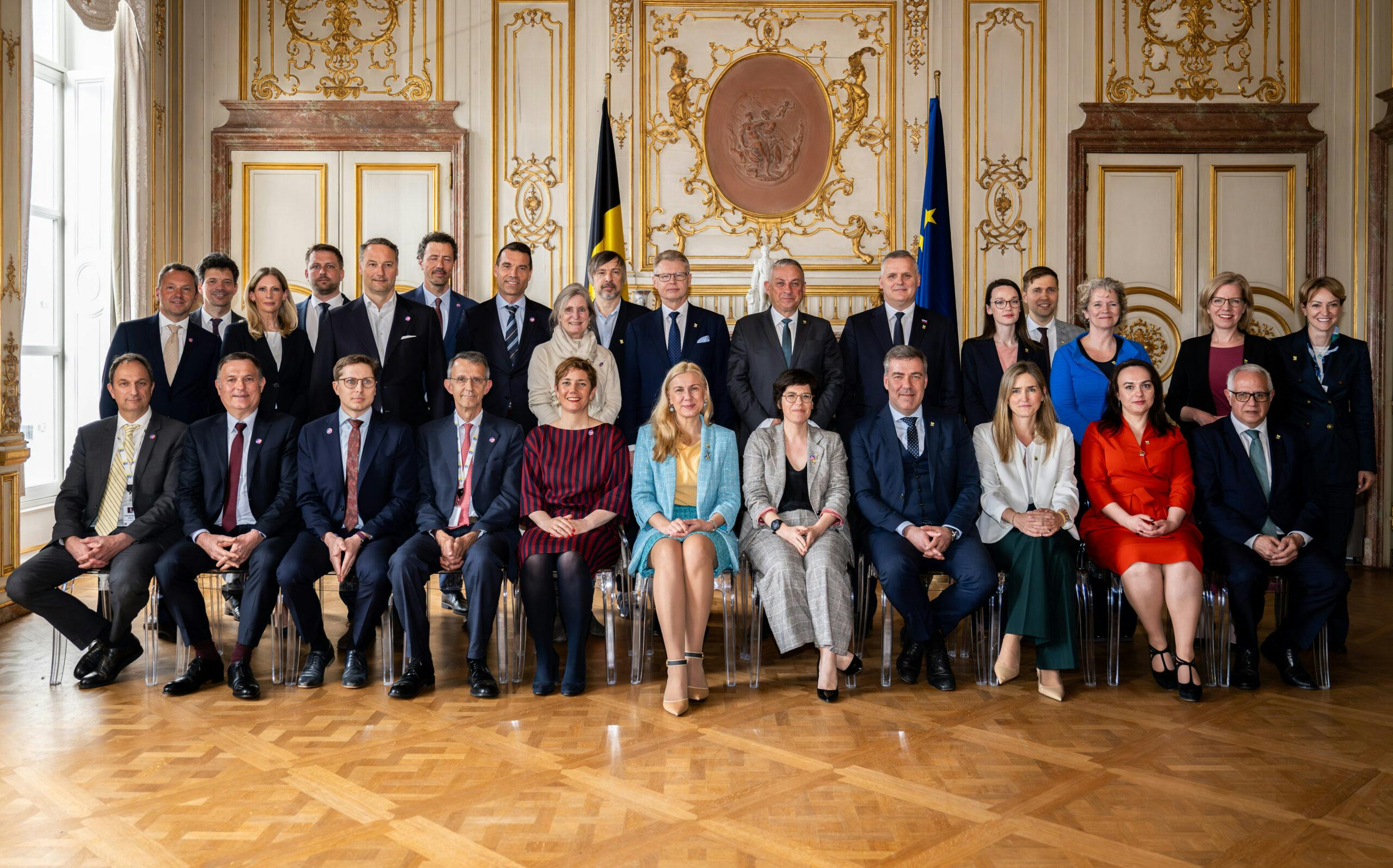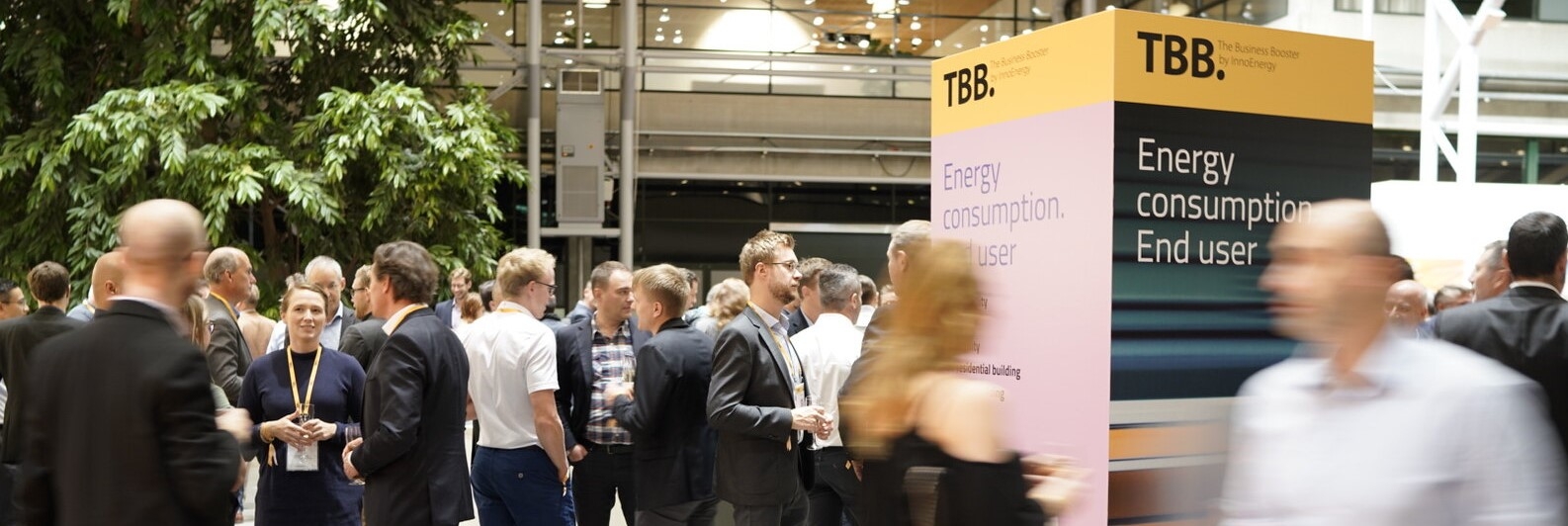EIT InnoEnergy signs the European Solar Charter to support the domestic photovoltaic industry

InnoEnergy signs the European Solar Charter alongside the European Commission, 23 national governments and representatives from the European photovoltaic solar industry.
Signed in Brussels
On April 15 2024, Energy Ministers from 23 EU countries, the European Commission and around 100 industry representatives signed the European Solar Charter in Brussels. The Charter is a joint commitment from national governments and the European photovoltaic solar industry to strengthen the competitiveness of the industry and support the manufacturing of European products that meet high sustainability and resilience standards.
On behalf of EIT InnoEnergy, CEO Diego Pavia was present to sign the Solar Charter alongside EU Commissioner for Energy Kadri Simson. With targeted and coordinated effort, bringing together the industry, the European Commission, Member States, and private and public investors like the European Investment Bank (EIB), the business case for PV manufacturing in Europe will be significantly strengthened.
Sustainability and resilience standards for solar in Europe
Signatories of the Charter endorse several voluntary commitments which EIT InnoEnergy supports. Most notably, we support:
- Prioritising high-quality sustainable and resilient solar PV products in Europe. Implementing ecodesign requirements for PV products will ensure high environmental standards that allow the EU to rule out the most harmful products, lower the carbon and material footprint of the PV value-chain globally, and maintain the trust of end-consumers in the PV supply-chain. Additionally, the implementation of high sustainability and resilience standards through auctions and public procurement frameworks outlined in Net-Zero Industry Act is key to leveling the playing field for the European value-chain.
- Reinforcing investments in the solar manufacturing value chain from public investments such as the European Investment Bank (EIB), including through InvestEU, which will be vital to bring confidence to the market and crowd-in private investors. Establishing a stronger dialogue between the European Commission and the EIB will be key to achieving this.
- Support the establishment of a pan-European Solar Academy, in collaboration with implementing partners, to facilitate the expansion of skills availability for the EU solar sector, including for manufacturing.
The signing of the EU Solar Charter took place at the Palais d’Egmont in Brussels, supported and signed by 23 Member States: Austria, Belgium, Bulgaria, Croatia, Czechia, Denmark, Estonia, Finland, France, Germany, Greece, Hungary, Italy, Latvia, Lithuania, Luxembourg, Poland, Portugal, Romania, Slovakia, Slovenia, Spain, and The Netherlands.

